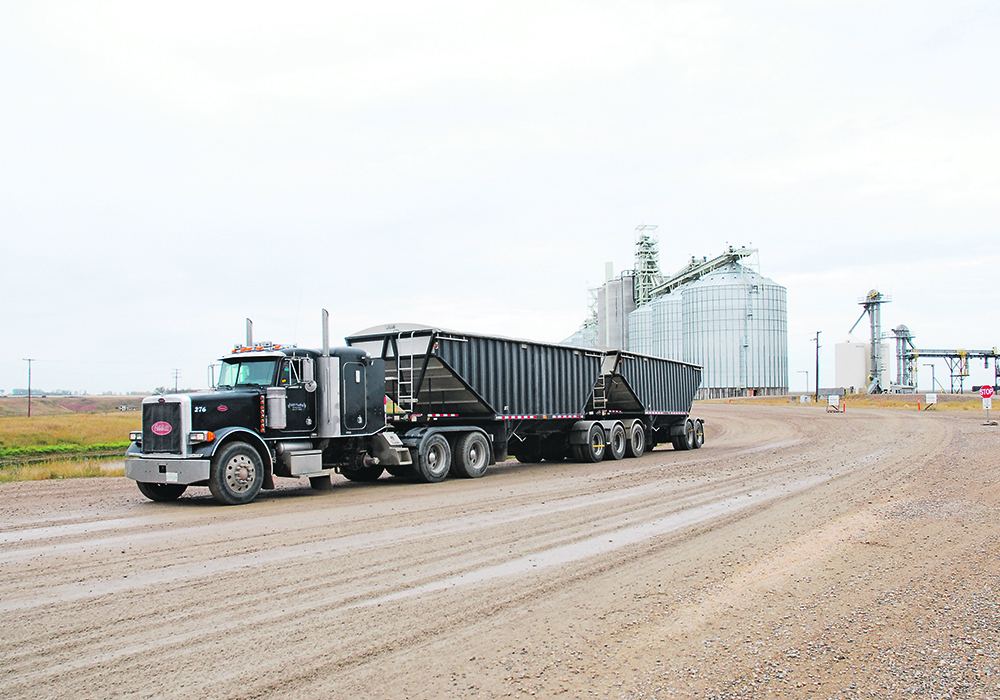Force majeure is a phrase that’s rarely used in Canadian agriculture, except when there’s a dispute over a grain contract.
Force majeure is often defined as an act of God — something out of the control of the parties who signed the contract.
That extraordinary event means executing on the contract is impossible.
The force majeure (superior force) clause allows one party or both to nullify the deal.
But in Canadian contract law, a force majeure isn’t just an act of God situation.
Read Also

Using artificial intelligence in agriculture starts with the right data
Good data is critical as the agriculture sector increasingly adopts new AI technology to drive efficiency, sustainability and trust across all levels of the value chain.
A lot depends on the terms and language in the contract and who wrote the agreement.
“Force majeure clauses are not created equal,” said Torys, a legal firm with offices across Canada and in New York.
“Force majeure is not a freestanding legal doctrine. The circumstances (of) when a party may be relieved from the consequences of acts that are beyond their reasonable control are dictated by the terms of the contract.”
In other words, the party writing the contract can list the events that trigger a force majeure. That could include a list of scenarios that aren’t acts of God, such as failure to get a government permit, problems with computer services or lack of labour.
In Canada’s grain industry, production contracts can be an effective way to manage risk, for both farmers and grain buyers. However, grain contracts and how they’re structured came under the spotlight in the fall of 2021.
There was a severe drought in a large area of Western Canada and hundreds of farmers were unable to produce enough grain to satisfy the volumes in their production contracts with buyers. Many farmers were surprised that an extreme drought didn’t trigger force majeure, thus allowing them to void the contract.
Some producers were able to negotiate a settlement with grain companies, perhaps agreeing to deliver the outstanding oats or canola in 2022.
But others paid hefty penalties to grain buyers for failing to deliver the contracted amount of grain. Some wrote cheques of $50,000, $75,000 or more than $100,000 to grain companies.
Farm groups on the Prairies conducted studies to gather more information about grain contracts, including the Western Canadian Wheat Growers Association.
It sent 14 grain contracts to Thomas Kent, a lawyer in Calgary, to review the language in the documents.
He found most (contracts) contained terms and conditions that clearly had been drafted by the buyers.
Regarding force majeure, it was obvious that grain companies had written the clauses, he said.
“In the sample contracts provided, there is one even-handed force majeure clause…. And the rest, where the clause exists, are drafted only to the buyer’s favour.”
Crawley, MacKewn and Brush, a Toronto law firm, says on its website that force majeure clauses are highly specific. That is, they must mention the specific event that allows a party to invoke force majeure.
“Under Canadian common law, force majeure clauses can only be relied on if they are explicitly included in a contract. They are interpreted narrowly and will only apply where the language in the clause clearly captures the triggering event.”
Some contracts, including grain production contracts, also have an additional force majeure clause. It is called a “catch all” or “basket” clause, which covers triggering events not included in scenarios outlined in the force majeure list.
Example of a force majeure clause:
“The Supplier shall have no liability to the Customer under this agreement if it is prevented from or delayed in performing its obligations under this agreement, or from carrying on its business, by acts, events, omissions or accidents beyond its reasonable control, including, without limitation, strikes, lock-outs or other industrial disputes (whether involving the workforce of the Supplier or any other party), failure of a utility service or transport or telecommunications network, act of God, war, riot, civil commotion, malicious damage, compliance with any law or governmental order, rule, regulation or direction, accident, breakdown of plant or machinery, fire, flood, storm or default of suppliers or sub-contractors, provided that the Customer is notified of such an event and its expected duration.” Source: lawinsider.com
















